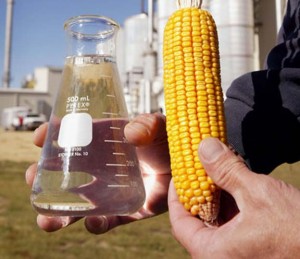
If the House approves a measure already passed by the Senate, U.S. taxpayers will no longer subsidize ethanol fuels.
Members of the Republican-controlled House of Representatives will now get their chance to prove how serious they are about cutting the budget deficit – even at the expense of political sacred cows – when they consider a proposed measure eliminating nearly $6 billion a year in subsidies for ethanol production.
The Senate has already approved its version of the bill, by a lopsided 73 – 27 vote that found even some farm state lawmakers agreeing to end the giveaway. That measure would also lift a 54-cent a gallon tariff on biofuel from Brazil that had helped hold prices on ethanol and E85 fuels above what the market might have otherwise allowed.
Unless the measure falls flat in the House or receives an unlikely White House veto, ethanol-based fuels, such as E85, will likely become significantly more expensive. In turn, that could effectively kill its use as an automotive alternative fuel. But the cost to the nation’s farmers could be significant.
While both of Michigan’s senators voted to maintain the subsidy for U.S.-made ethanol — reflecting the state’s large corn farm lobby — the mood has been clearly shifting in recent times. Only a few years ago, General Motors had funded an elaborate “Go Yellow” marketing campaign designed to build support for E85, a fuel made up of 85% ethanol and 15% gasoline. But industry insiders say GM and other makers had supported the use of the biofuel primarily because it let them slip through loopholes in federal fuel economy standards.
The automakers have begun to spar with the ethanol industry, however. There was strong opposition to new EPA rules that require that even regular gasoline double the amount of ethanol that is blended in – something manufacturers fear could damage engines and fuel lines. The auto industry has also opposed proposed rules that would require most vehicles to be able to run on biofuels by 2017.
Other potential backers have also turned on ethanol including some environmentalists, such as Greenpeace USA, who argue that the alcohol fuel is not nearly as green as backers proclaim. Studies suggest it takes more energy to produce ethanol than the fuel actually yields, while the process also requires an estimated 300 gallons of water for every gallon of ethanol.
The National Restaurant Association, meanwhile, has argued that diverting food stocks – typical corn – for ethanol has hurt consumers, a GAO report suggesting some foods now cost 20% more as a result.
Without the support of those powerful lobbies, ethanol and farm industry backers found it harder to sell the idea of having American taxpayers sponsor ethanol production to the tune of 45 cents a gallon.
“The ethanol industry’s days of living high off the taxpayers’ hog have come to an end,” proclaimed Kate McMahon, biofuels campaign coordinator at Friends of the Earth.
Her comments may be premature, however, as it remains to be seen if the House will go along. But Congressmen sent a signal with a vote of their own, on Thursday, which went 283 – 128 to block the Department of Agriculture from funding the tanks and blender pumps needed to expand the use of ethanol at the gas pump.
Nonetheless, Republicans could face pressure to back down, especially in the many farm states they control and where the ethanol subsidies have been seen as critical to farmers big and small.
But in the current political environment, with Washington boxing itself into a cost-cutting corner, both parties seem anxious to show they mean business and the corn stalks seem to be within easy reach of the budget axes.
The Obama Administration, meanwhile, has said it would like to lower the subsidies but not necessarily eliminate them, Agriculture Secretary Tom Vilsack suggesting, “We need reforms and a smarter biofuels program, but simply cutting off support for the industry isn’t the right approach.” But political observers doubt the current measure would draw a veto.
The question is what would happen if the subsidies are pulled.
Farmers are already feeling the pinch, corn prices on the Chicago Mercantile Exchange plunging 12% this week – though that’s based on last week’s record of $8 a bushel.
The U.S. Renewable Fuels Association has called the vote “shortsighted,” and warned that it will become more difficult to sustain a consumer market for E85 without the subsidies. The price of the fuel has fluctuated widely compared to gasoline, but experts caution that it would require a significant discount to keep demand up for the biofuel.
Part of the problem is a lack of consumer awareness. But many consumers have also come to realize that ethanol yields significantly lower mileage than gasoline, since it actually has a lower energy content, gallon per gallon. With gasoline priced at $4 a gallon, ethanol would need to be closer to $3 to yield a comparable cost on a per-mile basis.
Those who want the ethanol subsidies maintained – along with some who voted to kill the hand-out – complain that targeting the biofuel alone is not enough. They note that Washington lawmakers earlier this year decided to maintain the billions of dollars that the U.S. Treasury hands out to the oil industry each year, despite the record profits being reported by companies like Exxon-Mobil.

I can understand the debate about E85, what I don’t understand is why congress voted to keep paying oil Companies subsidies that they don’t need or do I have miss-information about that?
No, that’s precisely what happened, and was apparently a highly-politicized decision. No wonder lobbyists make the big bucks.
Paul A. Eisenstein
Publisher, TheDetroitBureau.com